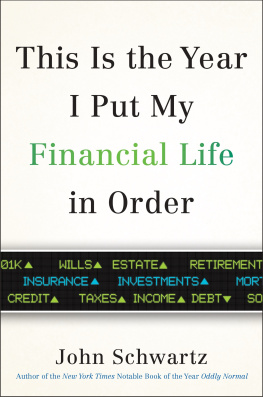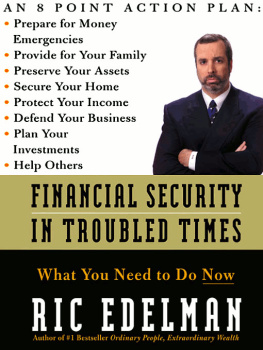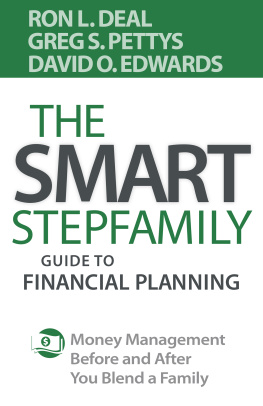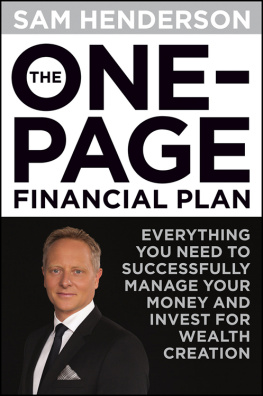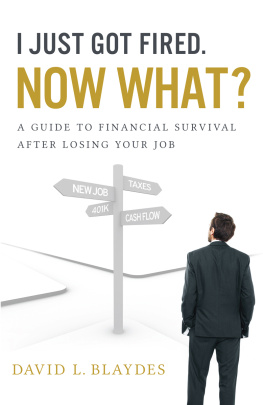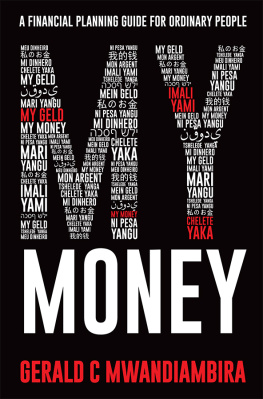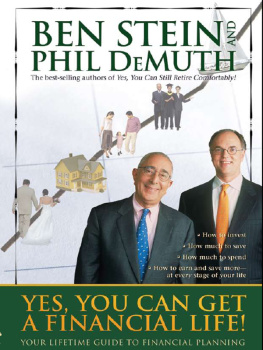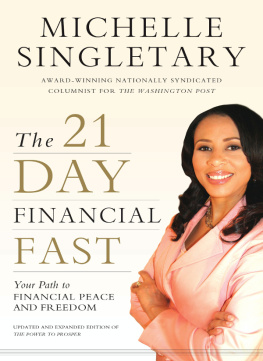Penguin supports copyright. Copyright fuels creativity, encourages diverse voices, promotes free speech, and creates a vibrant culture. Thank you for buying an authorized edition of this book and for complying with copyright laws by not reproducing, scanning, or distributing any part of it in any form without permission. You are supporting writers and allowing Penguin to continue to publish books for every reader.
This publication is designed to provide accurate and authoritative information in regard to the subject matter covered. It is sold with the understanding that the publisher is not engaged in rendering legal, accounting, or other professional services. If you require legal advice or other expert assistance, you should seek the services of a competent professional.
INTRODUCTION
Annual income twenty pounds, annual expenditure nineteen pounds nineteen and six, result happiness. Annual income twenty pounds, annual expenditure twenty pounds nought and six, result misery.
CHARLES DICKENS, DAVID COPPERFIELD
I AM AN IDIOT.
That, at least, is the impression I get from personal finance websites and magazines and books. They all seem to say Im doing pretty much everything wrong when it comes to my financial life, basically because I dont pay that much attention to my finances.
As a journalist, I understand that telling people to doubt themselves is part of the game of newsstand sales and, in the digital age, page views. Thats why Youre doing it wrong is such powerful clickbait. None of us spends much time on a website that affirms our choices and tells us we are in good shape. No parenting magazine could last long if it didnt suggest that its advice will make a world of difference. This is especially true when it comes to advice about parenting: Our seven-step plan will help you raise a future Ivy Leaguer! Ignore us, and you will end up with a basement-dwelling angry loner who spends his days playing online games and staring dully at porn.
Its much the same persuasion game when it comes to financial advice: the person giving the advice has to start from the position that youll go broke without this help. In publishing, sex may sell, but insecurity sells even better.
In my case, they could be right about my being all wrong. I mean, look at me. I had reached my mid-50s and didnt have a will. How dumb is that? I had no idea whether the life insurance that I got through my employer was enough to support my family if I got squashed by a bus during my morning run. And I hadnt given any thought to figuring out whether the money Id been putting away for retirement had been well invested and would lead my wife, Jeanne, and me to comfort or misery. Living in the now may be great Zen wisdom, but its a lousy way to go about planning for retirement.
We all know we need to do these things: to balance our portfolios, to get a will, to make sure our life insurance policies are generous enough to take care of our loved ones if we meet up with that aforementioned bus. Still, we procrastinate, or dont know what we should do. Were supposed to buy low and sell high. Or is it buy and hold? Were supposed to spring into action and refinance our mortgages the moment interest rates drop below, uhwhat was that rule of thumb again? Were supposed to pay down all our loans, except maybe for the loans that have really low rates. Or is it the smallest loans first? And in the middle of all that, were supposed to finance the kids college educations and deal adroitly with expensive family emergencies.
So over the last year, Jeanne and I embarked on a project: we took a hard look at what a rather heedless financial existence has left undone. I tried to educate myself about the world of finance and investing. Then, with the help of books, friends, and a few professionals, we worked to get our financial life in order. This book is the story of how we got here, what we did, and what we learned along the way.
I realized it was time to get our financial house in order, not because Im near retirement (I hope not!), but because this reckoning was overdue. We were surely starting later than we should have, but without a time machine, starting now was as good as it was going to get. Better late, than, you know.
Our financial life has not been a straightforward march toward prosperity. We have struggled; for much of our adult lives, Jeanne and I have lived paycheck to paycheck, and we have veered close to financial disaster more times than Id like to remember. Our late 30s were a nightmare. Jeanne and I lived through a crisis that started when we moved from New York City to Washington, D.C., so that I could take a great job. But a New York real estate slump kept us from being able to sell our apartment, and deadbeat tenants drove us nearly to bankruptcy. We lost the New York place, and the resulting squeeze kept things tight for years after that.
How tight? When I was working at The Washington Post, on the days before payday, my lunch order in the company cafeteria was often french fries with gravy. The mess of carbs, salt, and fat cost less than two bucks, and that filling meal kept me going until I could get home for dinner. And I knew that one solid knock from illness, or a layoff, could have transformed our financial life from tight to devastated.
That didnt happen, thank goodness. But the ups and downs continued. Things would let up for a while, and the squeeze would set in again. About a year after Id gotten to The New York Times, an editor predicted that, financially speaking, I was going to crash and burn. He wasnt my boss, but we both worked for the business section of the paper and had gotten to be friendly. We often rode the same train into the city from Maplewood, New Jersey, and back again.
I know what you make, he said, and I dont see how youre going to make it.
He edited personal finance stories and had planned out his own retirement beautifully. He had built up a generous cushion in his retirement plan and could count on a good pension, as well. He lived frugally, driving a beat-up Ford Fiesta that got more than 40 miles per gallon. In the year or so before he retired, he had built a house on Cape Cod and planned to keep up a little freelance editing work for additional income. This cobblers children did not go barefoot. It was clear from our conversation, however, that he didnt understand how Jeanne and I survived from paycheck to paycheck, much less saved for the future. And he was hinting at something even worse: he didnt think we were going to make it. At all.
And you know what? He wasnt wrong. We were in trouble. Despite our best efforts to stay within our means, we were spending more than we were making, and our debts were once again adding up.
Result: misery.
So I might seem like the last person in the world youd want to take financial advice from. After all, we had made bad decisions, and they put us in a hole. It was very hard to climb out.
But we did climb out.
How did we do it? Some of it was luck. Some of it was good choices we made in our 20s. Some of it was, in our confusion and fear, finding people who knew much more than we did and following their advice. And some of it was learning new things and acting on that hard-earned wisdom.

